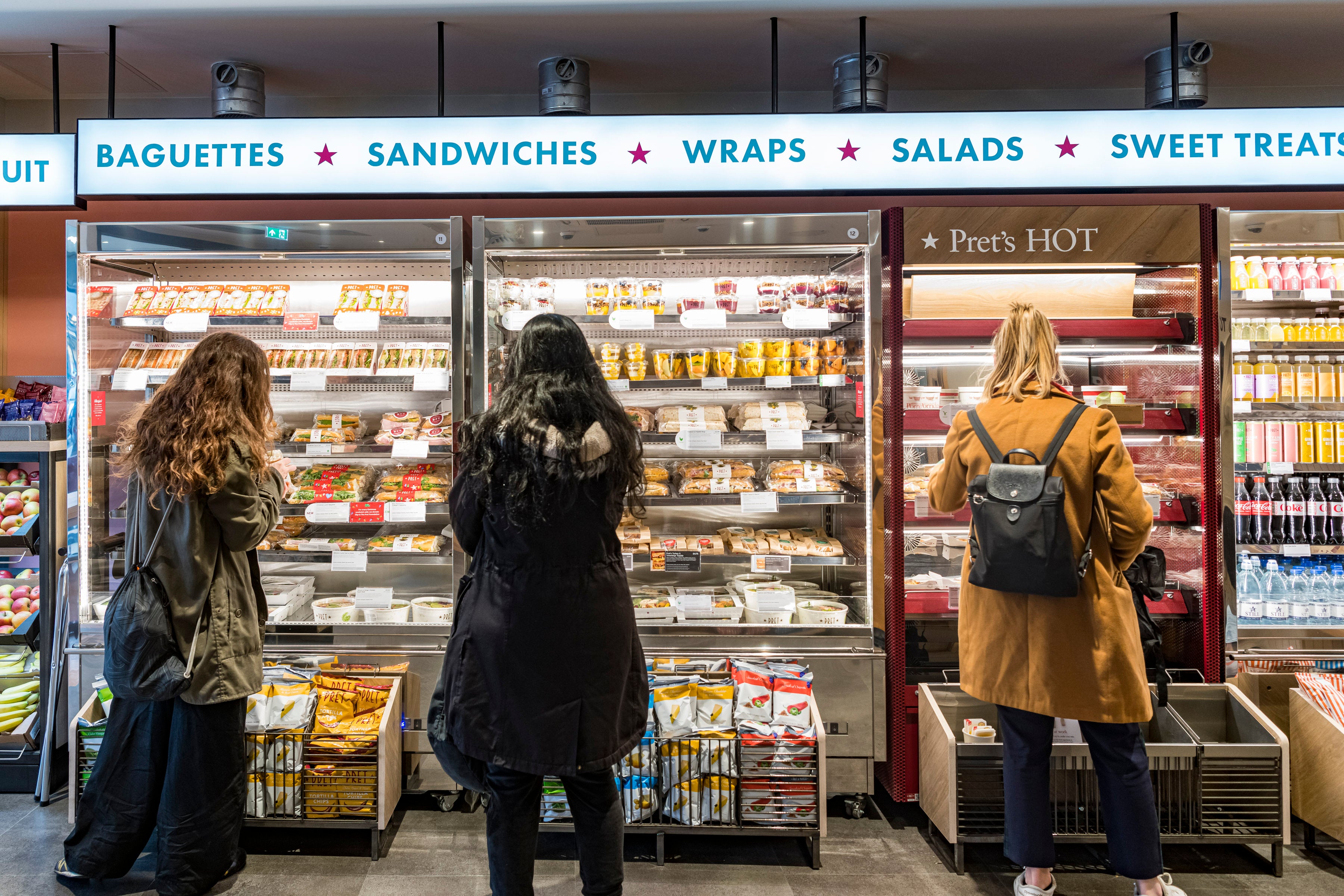Can Pret-a-Manger’s first-ever “meal deal” turn around the ailing sandwich chain? From Tuesday, a new lunch deal – which will include “any bread-based sandwich, crisps, and a drink” – will be trialled at 70 stores, at a price point between £6 and £7. A similar “coffee and croissant” combination will also be available for breakfast.
In total, seven different meal deals will go on a limited run, to test which ones might best coax back customers put off by the chain’s astonishing rise in prices in recent years – or, as one wag put it, “Pretflation”.
Customers already squeezed by the cost of living crisis have noticed some not-so-subtle hikes in prices. Five years ago, Pret’s egg mayonnaise sandwich cost £1.89; today, in the branch closest to The Independent’s London office at least, it’s £2.99 – an almost 60 per cent increase.
Many once-loyal customers have voted with their feet, heading instead to rival sandwich chains and supermarkets offering lunchtime meal deals. Accordingly, last year, Pret slumped to an eye-popping £525m loss, from the previous year’s £62m in the red.
Pret has two big problems. The first is rising costs, including chancellor Rachel Reeves’s tax raid on employers, which dealt a particularly savage blow to the hospitality industry of which Pret is part. The second is that inflation-battered consumers now see the chain they once picked up a lunchtime sarnie as pricey, but not luxe-y. The launch this summer of Pret’s Super Plates salad range introduced business workers to the £10.95 chipotle chicken salad, among others – but, at more than a tenner (and as much as £13…), I suspect that may have been a psychological price barrier too far.
Over the years, Pret has tried various wheezes to keep its customers, including a coffee subscription deal, which proved more trouble than it was worth. What started out as a £30-a-month plan, offering five free coffees a day and 20 per cent off food, was ditched at the cost of acres of bad publicity and the angering of some of the company’s most loyal customers. For just £5 per month, membership of the “Pret Club” now offers up to five hot or iced “barista-made” drinks a day at half price.
Trialling new meal deals is the latest stab at luring more customers back – but it also risks confusing them. The complexity of dual pricing was one of the sticking points that led to the first subscription deal’s demise.
The logic is, nonetheless, sound. Meal deals have proven to be wildly popular. Most of the supermarkets – and you’ll probably find one of their convenience formats within spitting distance of a Pret – enthusiastically embraced the concept. True, Tesco recently upped the price of its meal-deal offer by 25 per cent, but at £3.85 with a Clubcard or £4.25 without, for a sandwich, snack and drink, it remains quite competitive. A premium version (a good read-across with what Pret will offer) comes in at £6.
Co-op and Sainsbury’s have sandwich deals for around £3.50. Waitrose, much-loved by affluent shoppers, is often pricey but its “food to go” offer is well-pitched at just £5; when I roadtested it, I managed to include items that would have gone for more than £10 if purchased individually. The phrase “loss leader” came to mind: if a meal deal brings in customers and they fill up a basket while they’re there, it’s a win.

The problem for Pret it is caught in an uncomfortable middle. At the cheaper end are our supermarkets and, of course, Greggs, whose lunch meal deal means a sandwich, salad, pasta or chicken goujons – ooh! – a drink, and a side (wedges, fruit pot, crisps, yoghurt or egg pot) for a fiver. Its move into “food on the go” has proved highly successful – which may have sparked Pret into following suit.
Coffee-holics, meanwhile, have indies and newer chains, which will often tell you where their beverages are sourced, with a large menu of different coffees to choose from. They will cheerfully serve up matcha teas while they’re at it. Their offerings can prove quite pricey, and they don’t tend to play the meal deal game. But value is not what their customers are looking for. They want their tastebuds tickled.
It does rather look like Pret has been bumped into the meal-deal market, grudgingly, and I doubt it is going to fix its underlying problems. They have been created by changing consumer tastes and the impact of the cost of living crisis. I will be interested to see which of the its seven meal-deal combos, if any, are rolled out across the entire chain.
The company really needs the economy to improve, and inflation to ease, so that consumers become a bit less price-conscious. Its best hope is for chancellor Rachel Reeves and Bank of England governor Andrew Bailey to serve up an economic meal deal – and as prêt as they can.




